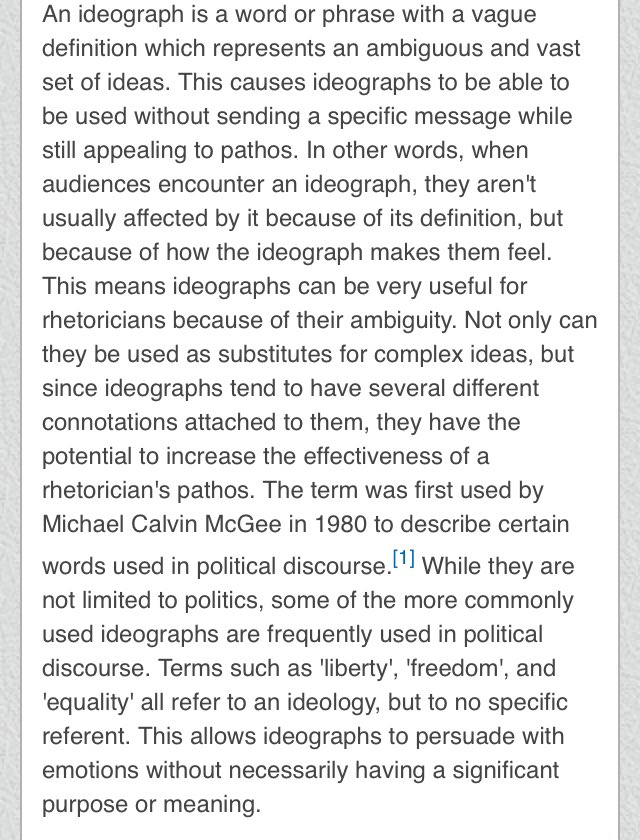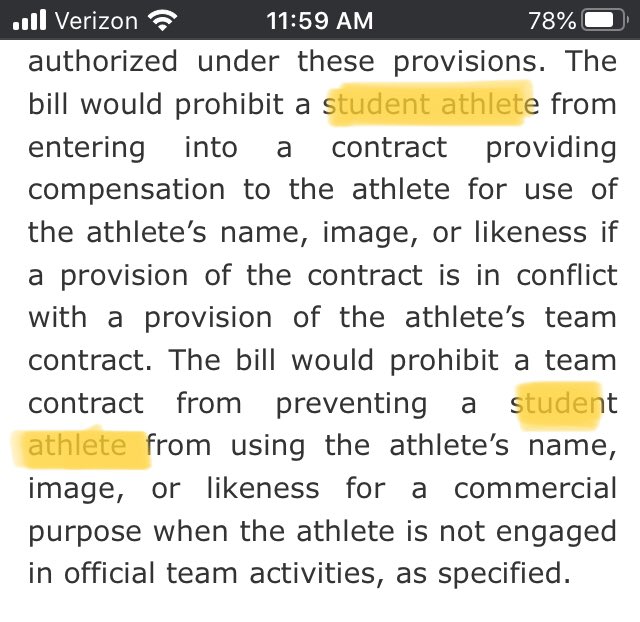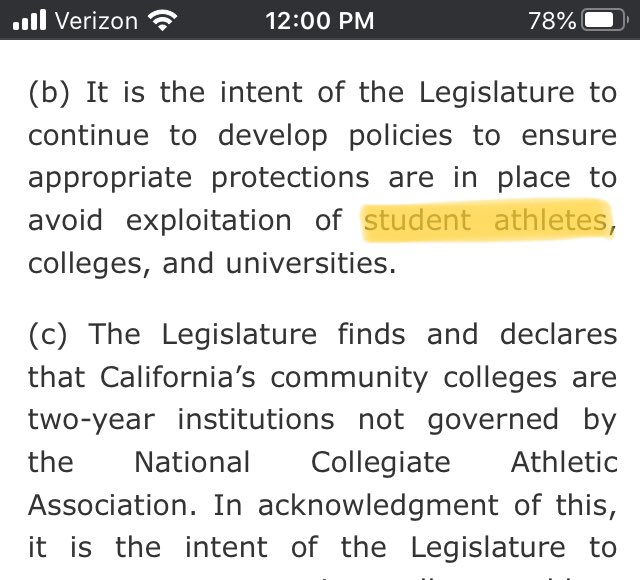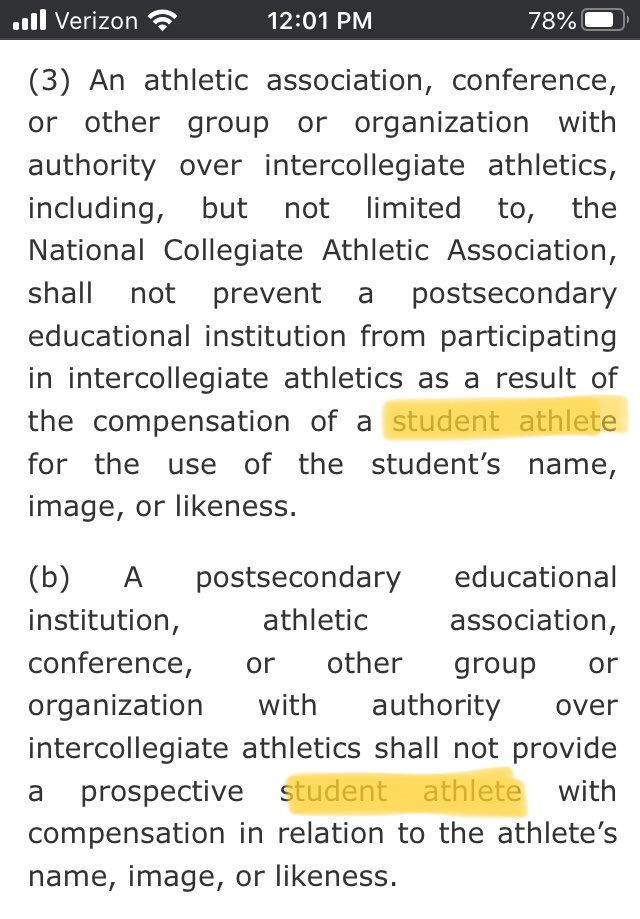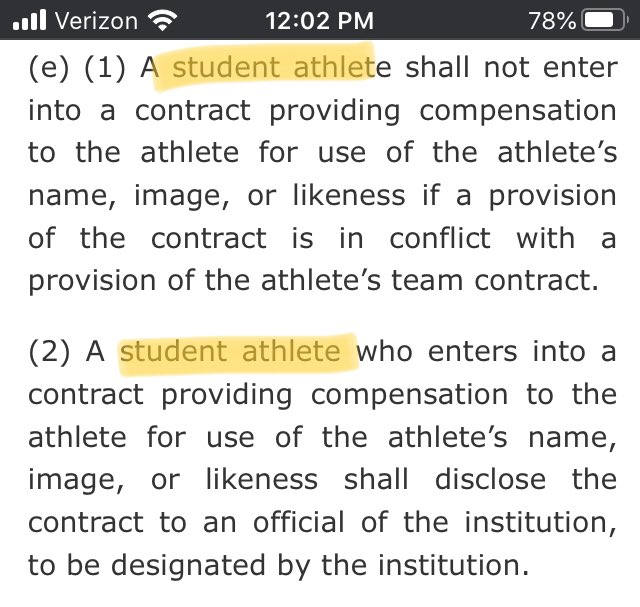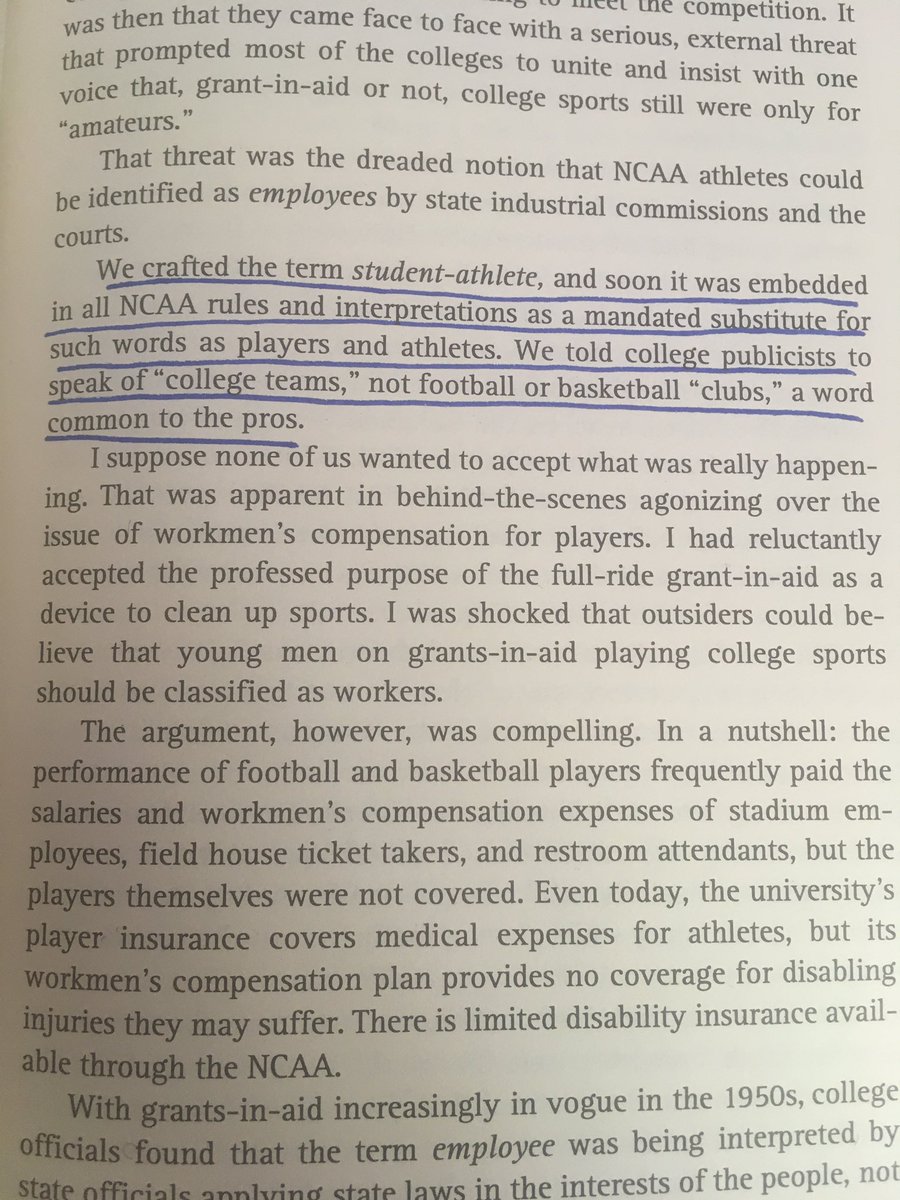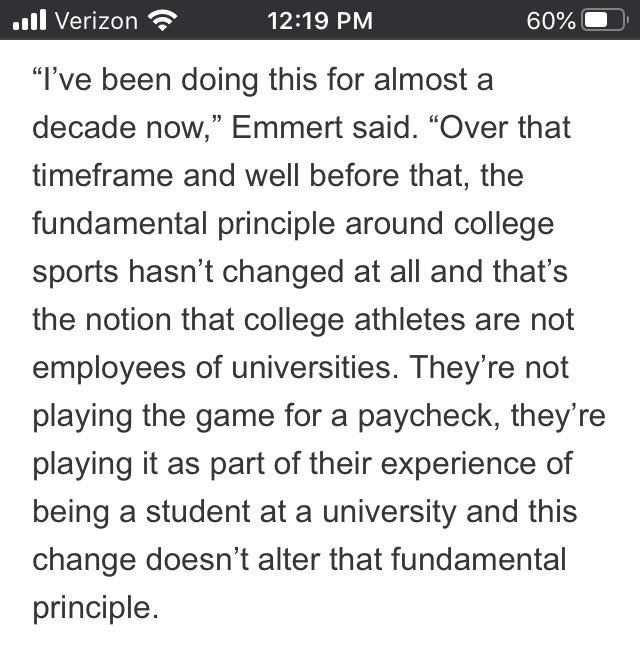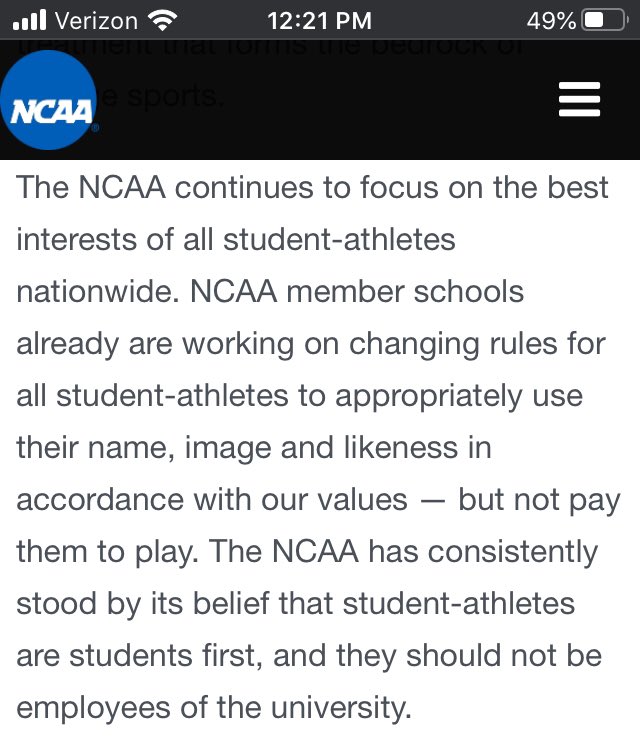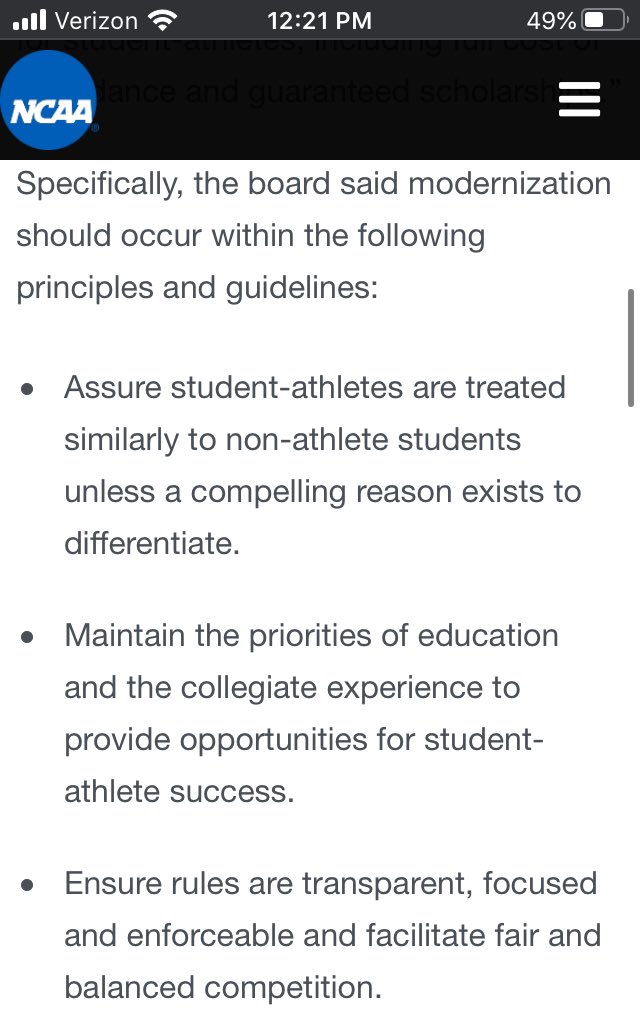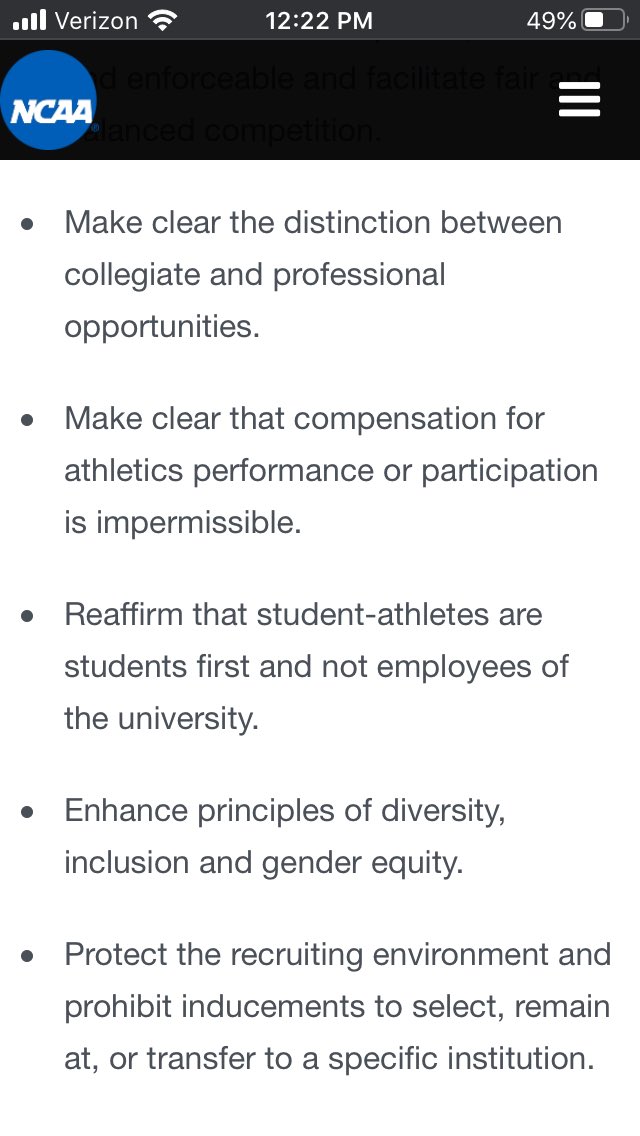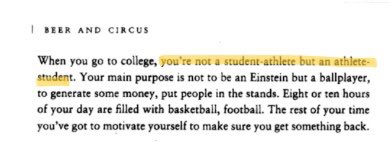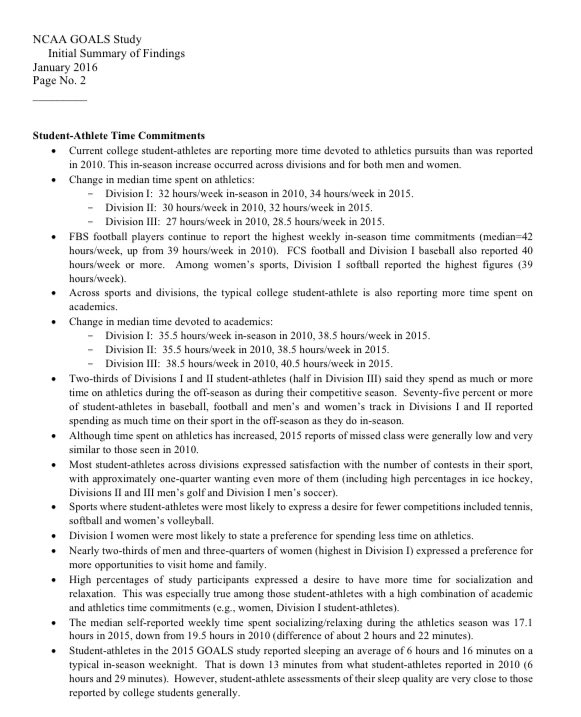The easiest way to resist the @NCAA is to stop saying “student athlete.” Here’s why:
Hello Marxists! Today we are going to be talking about ideology and ideographs and how the NCAA has been successfully conditioning a collective consciousness in college sports fans for almost 70 years using two words: student athlete.
Strap. In. I’m condensing a 20-page research paper into a Twitter thread, and it’s a critical thread, but it’s also a lot of fun, because language is amazing.
So, for starters, what is an ideograph? In short, an ideograph is a brief, ideologically-loaded term that communicates a fluid, but common meaning and elicits strong, often politically-charged emotions. (Think “freedom,” “independence,” “family values.”)
(And I must informally cite Calvin Michael McGee and Dana Cloud for their fabulous work that I have referenced here).
Ideographs are emotive buzzwords, and they’re hard to argue with. Who can oppose a war if it’s for freedom’s sake? Who can shoot down legislation that upholds “family values,” even if it’s repressive? Arguing with an ideograph means you’re arguing with complex, cultural emotions.
I argue that student-athlete is an ideograph bc it is ideologically loaded, and rooted in the amateurism myth. Like it’s sooo sweet that student-athletes (unlike professionals) play for the love of the game, right? Lots of folks (falsely) argue that money corrupts that innocence.
There are other super problematic terms in the NCAA’s lexicon (amateurism, line of demarcation, collegiate model), but student athlete is the one that’s most commonly used, even by NCAA critics. Here’s a look at the term popping up in SB-206 (The Fair Pay to Play Act).
The GIF below is what reflexively happens to my face if you say “student athlete” around me. I hate it. And we have to rewind to 1947 to understand why. That’s the year Walter Byers became the NCAA’s first executive director.
In 1951, as the NCAA was hit with lawsuits pertaining to workplace rights, Byers coined the term “student athlete” to argue that college athletes were actually students, not employees. Here’s an excerpt from Byers’ memoir, which he wrote in 1990, explaining that process.
Does any of that sound familiar? If you follow the NCAA, it should. That’s because Mark Emmert and other power players in the NCAA are still arguing against the validity of athletic labor.
“Student athlete” has always been a term strategically designed to suppress the rights of college athletes and subjugate them to system that doesn’t honor their complete personhood, a collective ideology that has been cultivated for decades.
And it’s working! Folks still argue that athletic work is not labor and college athletes have yet to secure employee status. None of the NIL legislation (at the state or federal level) is pushing to secure that right for college athletes, either.
Plus, there’s the argument that college athletes are entitled for wanting payment. And that paying college athletes will “kill” college sports. Why don’t we see this discourse around professional athletes? Bc they’re not student athletes. The NCAA drew that line decades ago.
That’s a problem. College athletes are vulnerable without their right to organize. And legislation like Title VII applies to employees, which, according to the NCAA, student athletes are not. Those are just two reasons why the ideology behind “student athlete” is troubling.
“But Katie, I was/am a student athlete, and I take a lot of pride in that label. Are you saying I can’t use it anymore?”
You can say whatever you want. I’m not the language police. But I will tell you that the easiest way to resist the NCAA is to stop using its language.
You can say whatever you want. I’m not the language police. But I will tell you that the easiest way to resist the NCAA is to stop using its language.
And the good news is, there are several alternate terms available to use (and they’re easy swaps)! “Player,” “athlete,” and “college athlete” are all wonderful. Florida’s pay for play bill uses “intercollegiate athlete,” which is a mouthful, but fine if you want to sound fancy.
And if you want to get sassy with it: there’s also “athlete-student” ala Isaiah Thomas, (as quoted by Murray Sperber) which is not only more accurate, according to NCAA research, but also a subtle jab at the NCAA. Language is so fun!
OR, you can always use terms that most accurately describe what college athletes actually are: “laborers,” “workers,” or “university employees.”

 Read on Twitter
Read on Twitter